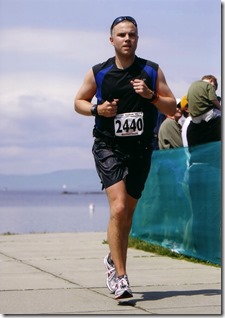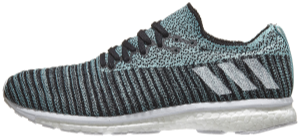 Last year I started sending out a weekly newsletter with recommended articles from around the web. I stopped producing the newsletter in the Fall because it was sometimes tough to come up with articles on a weekly basis, and I simply ran out of steam trying to keep up with it. I thought I might resurrect the recommended article posts on a more sporadic basis, and I’ve read several good articles in the past few weeks that are well-worth sharing.
Last year I started sending out a weekly newsletter with recommended articles from around the web. I stopped producing the newsletter in the Fall because it was sometimes tough to come up with articles on a weekly basis, and I simply ran out of steam trying to keep up with it. I thought I might resurrect the recommended article posts on a more sporadic basis, and I’ve read several good articles in the past few weeks that are well-worth sharing.
First, Alex Hutchinson discusses the benefits of training in heat to aerobic performance. As someone who tends to suffer when it gets hot out, it’s nice to know that slogging through hot miles can pay off come the cooler temps of Fall. And you have to love an article that starts out with the following in the opening paragraph:
“Did you know that, if you urgently need to rehydrate someone and they can’t take in fluids orally, you can shove the tube of your hydration pack up their rectum and create an improvised Murphy drip to get the fluids in through the back door? (I don’t recommend trying this without appropriate training, and — thanks to this new knowledge — I also don’t recommend buying hydration packs second-hand!)”
Next, Meaghen Brown of Ouside Online wrote a fantastic article on overtraining syndrome in ultrarunners. She discusses the dramatic rise and subsequent health issues of several prominent ultrarunners in a cautionary tale that warns that sometimes pushing ourselves to the limit can have dire consequences. This article struck a chord with me as I think I was dealing with the effects of overtraining (and overwork) toward the end of last summer and wound up paying the consequences, both mental and physical, for several months in the Fall. I think it’s important to consider that you may not need to be an ultrarunner to suffer the effects of overtraining, and I’ve been trying to approach running (and life) in a much smarter way so far this year.
Next, a great article from Running Times that challenges the idea that there is one ideal way to run, emphasizes variation in our training and movement, and explores the importance of neuroplasticity. I love this passage:
“We all conform to a common blueprint. We have the same components arranged in the same order. But, as nature has no means of precisely manufacturing body parts, how our individual anatomy is fitted together varies extensively. Multiple dimensions of running architecture — snugness of bones within sockets, springiness of tendons, rigidity of feet, geometry of muscles — differ between individuals, sometimes subtly, sometimes dramatically.
We learn to run in ways that accommodate these mismatched parts thanks to a pervasive aspect of human biology: plasticity, our capacity to reshape neural and biological structures in response to repeated practice.”
Finally, an interesting read titled “This is why you shouldn’t believe that exciting new medical study.”
Enjoy!














Good group of articles Pete. I’d agree on overtraining not just being an elite issue. I actually dealt with it in the fall/winter of 2011/2012 (when I’d only been running for 2 year at that point) and I’m running much more now than I was then, but it is all about how much stress your body is adapting to or not adapting to and striking the right balance.
If you’re willing to share your overtraining experience, I’d be interested; I managed to overtrain on a shamefully low amount of miles per week due to poor sleep and job stress. How did you dig yourself back out?
Two quick lists to give a hint as to whether you’re over training, from NSCA’s personal trainer manual (overtraining = prolonged overreaching):
Common Markers of aerobic endurance Overreaching or Overtraining
◾ Decreased performance
◾ Decreased maximal oxygen uptake
◾ Earlier onset of fatigue
◾ General malaise
◾ Loss of interest or enthusiasm for training
◾ Disturbed psychological mood states
(increased depression, anxiety, fatigue
or decreased vigor or a combination of
these changes)
◾ Increased muscle soreness
◾ Decreased resting and maximal heart rate
◾ Increased submaximal exercise heart rate
◾ Decreased submaximal exercise plasma lactate concentration
◾ Increased sympathetic stress response
◾ Decreased catecholamine levels
Symptoms of Overtraining From resistance exercise
◾ Plateau followed by decrease of
strength gains
◾ Sleep disturbances
◾ Decrease in lean body mass (when not
dieting)
◾ Decreased appetite
◾ A cold that just won’t go away
◾ Persistent flu-like symptoms
◾ Loss of interest in the training program
◾ Mood changes
◾ Excessive muscle soreness
There seems to be some overlap with resistance exercise overtraining so I included that list too. Decreased mood and flu-like symptoms are the ones that really jump out to me, especially the former since training/running is meant to make one happier but sometimes we forget that in lieu of other goals like performance and bodyfat %.
I’m actually coming off a bout of overreaching myself, trying to just reduce stress, take more naps, and only reducing training a bit.